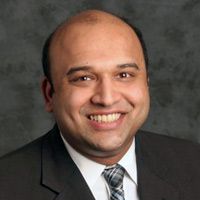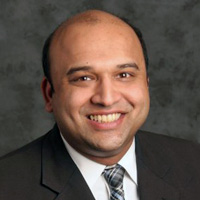6 Ways to Limit Health Care Costs
Living longer is nice, but paying more for health care isn’t. There are, however, a few strategies you can consider to help limit those rising costs.


Profit and prosper with the best of Kiplinger's advice on investing, taxes, retirement, personal finance and much more. Delivered daily. Enter your email in the box and click Sign Me Up.
You are now subscribed
Your newsletter sign-up was successful
Want to add more newsletters?

Delivered daily
Kiplinger Today
Profit and prosper with the best of Kiplinger's advice on investing, taxes, retirement, personal finance and much more delivered daily. Smart money moves start here.

Sent five days a week
Kiplinger A Step Ahead
Get practical help to make better financial decisions in your everyday life, from spending to savings on top deals.

Delivered daily
Kiplinger Closing Bell
Get today's biggest financial and investing headlines delivered to your inbox every day the U.S. stock market is open.

Sent twice a week
Kiplinger Adviser Intel
Financial pros across the country share best practices and fresh tactics to preserve and grow your wealth.

Delivered weekly
Kiplinger Tax Tips
Trim your federal and state tax bills with practical tax-planning and tax-cutting strategies.

Sent twice a week
Kiplinger Retirement Tips
Your twice-a-week guide to planning and enjoying a financially secure and richly rewarding retirement

Sent bimonthly.
Kiplinger Adviser Angle
Insights for advisers, wealth managers and other financial professionals.

Sent twice a week
Kiplinger Investing Weekly
Your twice-a-week roundup of promising stocks, funds, companies and industries you should consider, ones you should avoid, and why.

Sent weekly for six weeks
Kiplinger Invest for Retirement
Your step-by-step six-part series on how to invest for retirement, from devising a successful strategy to exactly which investments to choose.
Health care costs have been rising. Part of the reason could be an increased reliance on emergency care, but a lot of it could be chalked up to an aging population. People have a better chance of getting a disease or ailment the longer that they live. In 1960, newborns in the U.S. could expect to live slightly more than 71 years. Now they can expect to live just under 79 years.
Here are six ways to help you navigate the health care cost maze and potentially save:
1. Coordinate plans
Two-income couples should coordinate their insurance benefits. It might make sense to opt out of one plan and choose the family option on another. On the other hand, maintaining coverage with two providers can make sense, if one fills the gaps of the other. For example, one spouse may have better options for prescriptions, a lower deductible or a wider network of physicians. Then, the other may be able to take the insurance benefit as a lump sum benefit. A growing number of employers are offering a “cash in lieu of” or “pay in lieu of” benefits option, under which the employer offers a taxable “opt out” amount if an employee declines coverage because they’re covered under their spouse’s health plan.
From just $107.88 $24.99 for Kiplinger Personal Finance
Become a smarter, better informed investor. Subscribe from just $107.88 $24.99, plus get up to 4 Special Issues

Sign up for Kiplinger’s Free Newsletters
Profit and prosper with the best of expert advice on investing, taxes, retirement, personal finance and more - straight to your e-mail.
Profit and prosper with the best of expert advice - straight to your e-mail.
2. Check your bills
According to a Consumer Reports survey from 2014, 7% of patients found serious errors in their hospital bills. Those who paid $2,000 or more out of pocket for their care were twice as likely to find errors. These errors can range from typos and wrong codes all the way to forgetting to declare prior authorization for tests, procedures or seeing specialists. If you spot an error, then send a certified letter requesting a corrected bill and a copy of all documentation to your insurer, and contact the billing departments of both the insurance company and the physician’s office.
3. Follow doctor’s orders
The Centers for Disease Control and Prevention (CDC) reported in September 2016 that one in four Medicare participants age 65 or older with blood pressure issues—around 5 million people—do not take their blood pressure medicine as directed. In fact, 20% to 30% of prescriptions for chronic health conditions are never filled, and about half are not taken as prescribed, according to the CDC. Between $100 billion and $300 billion of avoidable health care costs have been attributed to non-adherence in the U.S. annually, representing 3% to 10% of total U.S. health care costs, according to a Johns Hopkins study.
4. Use medical expense deductions
If you incur extraordinary medical expenses in one year, you can deduct from your taxable income the medical costs that exceed 10% of your adjusted gross income (AGI). This can include out-of-pocket insurance premiums and a host of other expenses. See IRS Publication 502 for the complete list, and talk to you accountant about how the deduction may apply to you. For example, if you earned $80,000 in AGI, then your threshold is $8,000. Let’s say that you incurred $10,000 of medical expenses. You could write off $2,000 on your tax return.
5. Know your plan benefits
Take advantage of the free and discounted services offered by your health plan. Many providers subsidize flu shots, gym memberships, nutrition classes, health-risk assessments and other preventive care.
6. Explore a Health Savings Account (HSA)
If you have a high-deductible health insurance plan with lower premiums, then you may wish to explore an HSA. Funds contributed are not taxed when deposited, if made through your employer. And if you're on your own, they are 100% deductible (up to the legal limit). Withdrawals to pay qualified medical expenses, including dental and vision, are never taxed. Interest earnings accumulate tax-deferred, and if used to pay qualified medical expenses, are tax-free. Finally, you can invest the money should you wish to take advantage of potential compound interest.
Did you know? One of the best ways to save on overall medical expenses is to take care of yourself and your home. Bad habits can be costly, in both higher premiums for insurance and long-term expenses. Practice good hygiene, and take steps to avoid accidents at home. Small changes today can lead to better results in the future.
Profit and prosper with the best of Kiplinger's advice on investing, taxes, retirement, personal finance and much more. Delivered daily. Enter your email in the box and click Sign Me Up.

Justin J. Kumar embraces a proactive, systematic investment management approach with a customized, proprietary system to help guide his clients toward their financial goals.
-
 Nasdaq Leads a Rocky Risk-On Rally: Stock Market Today
Nasdaq Leads a Rocky Risk-On Rally: Stock Market TodayAnother worrying bout of late-session weakness couldn't take down the main equity indexes on Wednesday.
-
 Quiz: Do You Know How to Avoid the "Medigap Trap?"
Quiz: Do You Know How to Avoid the "Medigap Trap?"Quiz Test your basic knowledge of the "Medigap Trap" in our quick quiz.
-
 5 Top Tax-Efficient Mutual Funds for Smarter Investing
5 Top Tax-Efficient Mutual Funds for Smarter InvestingMutual funds are many things, but "tax-friendly" usually isn't one of them. These are the exceptions.
-
 Social Security Break-Even Math Is Helpful, But Don't Let It Dictate When You'll File
Social Security Break-Even Math Is Helpful, But Don't Let It Dictate When You'll FileYour Social Security break-even age tells you how long you'd need to live for delaying to pay off, but shouldn't be the sole basis for deciding when to claim.
-
 I'm an Opportunity Zone Pro: This Is How to Deliver Roth-Like Tax-Free Growth (Without Contribution Limits)
I'm an Opportunity Zone Pro: This Is How to Deliver Roth-Like Tax-Free Growth (Without Contribution Limits)Investors who combine Roth IRAs, the gold standard of tax-free savings, with qualified opportunity funds could enjoy decades of tax-free growth.
-
 One of the Most Powerful Wealth-Building Moves a Woman Can Make: A Midcareer Pivot
One of the Most Powerful Wealth-Building Moves a Woman Can Make: A Midcareer PivotIf it feels like you can't sustain what you're doing for the next 20 years, it's time for an honest look at what's draining you and what energizes you.
-
 I'm a Wealth Adviser Obsessed With Mahjong: Here Are 8 Ways It Can Teach Us How to Manage Our Money
I'm a Wealth Adviser Obsessed With Mahjong: Here Are 8 Ways It Can Teach Us How to Manage Our MoneyThis increasingly popular Chinese game can teach us not only how to help manage our money but also how important it is to connect with other people.
-
 Looking for a Financial Book That Won't Put Your Young Adult to Sleep? This One Makes 'Cents'
Looking for a Financial Book That Won't Put Your Young Adult to Sleep? This One Makes 'Cents'"Wealth Your Way" by Cosmo DeStefano offers a highly accessible guide for young adults and their parents on building wealth through simple, consistent habits.
-
 Global Uncertainty Has Investors Running Scared: This Is How Advisers Can Reassure Them
Global Uncertainty Has Investors Running Scared: This Is How Advisers Can Reassure ThemHow can advisers reassure clients nervous about their plans in an increasingly complex and rapidly changing world? This conversational framework provides the key.
-
 I'm a Real Estate Investing Pro: This Is How to Use 1031 Exchanges to Scale Up Your Real Estate Empire
I'm a Real Estate Investing Pro: This Is How to Use 1031 Exchanges to Scale Up Your Real Estate EmpireSmall rental properties can be excellent investments, but you can use 1031 exchanges to transition to commercial real estate for bigger wealth-building.
-
 Should You Jump on the Roth Conversion Bandwagon? A Financial Adviser Weighs In
Should You Jump on the Roth Conversion Bandwagon? A Financial Adviser Weighs InRoth conversions are all the rage, but what works well for one household can cause financial strain for another. This is what you should consider before moving ahead.